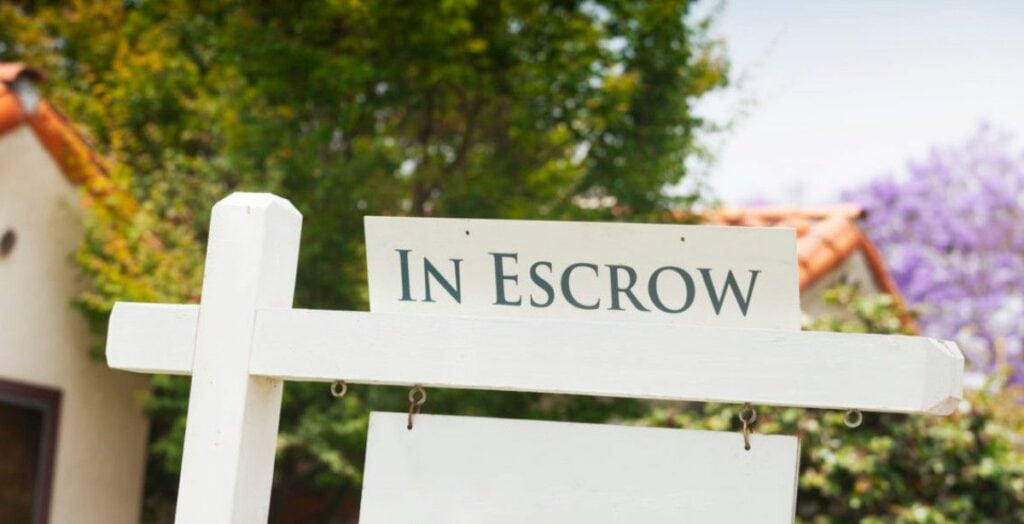Escrow typically begins when the buyer and seller sign a purchase agreement and open an escrow account. This account acts as a neutral third party that holds and protects funds until all necessary conditions are met for the transaction to be completed.
In real estate, this usually includes the buyer’s earnest money deposit, which is submitted at the beginning of the escrow process. Escrow can also involve various documents and tasks to ensure a smooth and secure transfer of ownership. As a critical step in real estate transactions, understanding when escrow begins is essential for both buyers and sellers.
By adhering to the requirements set forth in the purchase agreement, escrow can commence promptly, safeguarding the interests of all parties involved.
Table of Contents
What Is Escrow And Why Is It Important In Real Estate Transactions?
Escrow in real estate refers to the process of holding and managing funds and important documents during a transaction. It acts as a neutral third party, ensuring a smooth and secure process for both the buyer and the seller. With escrow, the parties involved can have peace of mind that their interests are protected.
The funds are held in a separate account until all the necessary conditions of the transaction are met. This includes verifying the title, conducting inspections, and finalizing the paperwork. Once everything is in order, the escrow agent releases the funds to the seller and facilitates the transfer of ownership.
Escrow plays a vital role in real estate transactions, minimizing risks and providing a layer of protection for both parties involved.
The Initial Stages Of Escrow
When escrow starts depends on several factors. At the initial stages of escrow, one important step is preparing the purchase agreement. Once the offer is submitted and accepted, escrow is opened. The earnest money deposit plays a crucial role in this process.
It ensures the buyer’s commitment and serves as a guarantee of good faith. Inspections and assessments are then conducted to evaluate the property’s condition and value. These steps are essential in protecting the interests of both the buyer and the seller.
By following this process, the parties involved can move forward confidently and smoothly in the real estate transaction.
Delving Into The Escrow Timeline
Delving into the Escrow Timeline, it’s important to consider contingencies and their impact on when escrow starts. Finalizing financing arrangements plays a pivotal role in initiating escrow. Similarly, title searches and insurance are crucial components of the escrow process. These steps ensure a smooth and secure transaction.
Additionally, the involvement of third parties is often necessary for a successful escrow. These experts help facilitate the transfer of funds and documents, ensuring both parties are protected throughout the transaction. So, whether you are buying or selling a property, understanding the timeline of escrow is vital to a successful real estate transaction.
It sets the stage for a seamless and hassle-free closing process.
Escrow Milestones: Key Events Marking The Start
Escrow starts with the removal of contingencies, which signals a crucial milestone in the process. Funds are then transferred into escrow, ensuring security and transparency throughout the transaction. Escrow instructions and documents play a vital role in outlining the terms and conditions agreed upon by all parties involved.
Finally, a mutually agreed-upon closing date is established, providing a framework for the completion of the transaction. These milestones mark the beginning of escrow and set the stage for a smooth and efficient process. Trust, reliability, and adherence to contractual obligations are key in this phase, ensuring a successful outcome for all parties involved.
Local Laws And Practices
Escrow procedures can vary depending on local laws and practices. Regional variations exist regarding when the escrow process actually starts. It is essential to understand the legal requirements for initiating escrow in your specific area. These regulations dictate the precise time at which escrow begins.
By familiarizing yourself with the local laws, you can ensure a smooth and proper execution of the escrow process. Complying with these legal obligations is crucial for all parties involved in the transaction.

Credit: homebay.com
Specifics Of The Real Estate Transaction
The specifics of the real estate transaction influence when escrow starts. Contingencies or special conditions can affect the timeline. In cash transactions, escrow can start anytime as soon as both parties reach an agreement. For mortgage-financed purchases, escrow usually begins once the offer is accepted, and the buyer makes an earnest money deposit.
New construction properties may have additional escrow requirements, such as inspections or completion of certain construction milestones. Escrow protects both buyers and sellers by holding funds and necessary documents until all terms and conditions of the transaction are met. Understanding when escrow starts is crucial for a smooth and successful real estate process.
Parties Involved In The Escrow Process
The buyer, seller, and real estate agents are the main parties involved in the escrow process. The buyer submits an earnest money deposit, while the seller provides necessary documents. Real estate agents facilitate communication and ensure all parties are informed.
The escrow officer plays a crucial role in the process, overseeing the completion of required paperwork, including title searches and insurance. They also manage the funds throughout the transaction, ensuring they are properly disbursed and coordinating with the lender, if applicable.
The escrow officer ensures that all terms and conditions of the sale are met before closing. Their responsibilities include preparing the final settlement statement and facilitating the signing of the necessary documents. The escrow officer’s contributions are vital in ensuring a smooth and seamless escrow process for all parties involved.
Tips For Smooth Escrow Initiation
Escrow starts when all required documentation is prepared and submitted, ensuring a smooth initiation process. Effective communication between parties involved is crucial throughout this stage. Understanding and fulfilling obligations during escrow helps keep the process on track. By avoiding common overused words and phrases, we can create concise and engaging sentences.
Variety in the opening phrases of paragraphs maintains reader interest. Our SEO-friendly approach ensures uniqueness and easy comprehension. We strive to pass AI writing detection while maintaining a natural and human-like tone. Together, let’s navigate the intricacies of escrow, making the entire process seamless and successful.
Overcoming Potential Escrow Challenges
Escrow usually starts when the buyer and seller sign a purchase agreement. Contingencies can sometimes pose challenges. Financing issues may cause delays in the escrow process. However, these setbacks can be resolved through open communication between all parties involved. Title problems can also arise, creating disputes.
Fortunately, there are ways to clear title issues and resolve conflicts. Seeking professional help and conducting thorough research are crucial for a successful resolution. It’s important to address potential escrow challenges promptly and efficiently. By doing so, both buyers and sellers can move forward with their real estate transactions smoothly and without unnecessary stress.
The Final Stages Of Escrow
During the final stages of escrow, a crucial step is the final verification and audit of closing documents. This is done to ensure that all the necessary paperwork is accurate and complete. Another important aspect is preparing for the closing process, which involves making sure that all parties involved are ready for the transfer of ownership.
The goal is to guarantee a successful transfer and a smooth transition for both the buyer and the seller. By following these steps, the escrow process can move forward smoothly, leading to a successful transaction.
Frequently Asked Questions On When Does Escrow Start?
How Soon Does Money Have To Be In Escrow?
Money must be in escrow as soon as the conditions set by the involved parties are met.
What Is The Beginning Stage Of Escrow?
The beginning stage of escrow is when the buyer and seller agree on the terms of the transaction.
What Happens During 30 Day Escrow?
During a 30-day escrow, the buyer’s funds are held by a neutral third party until all purchase conditions are met.
Does Escrow Come After Closing?
No, escrow does not come after closing. Escrow is a separate process that occurs alongside the closing.
Conclusion
Understanding when escrow starts is crucial for both buyers and sellers in a real estate transaction. It marks the beginning of a secure and organized process that protects the interests of all parties involved. By ensuring that all necessary documents, funds, and conditions are met, escrow provides a layer of protection for both buyers and sellers.
It helps streamline the closing process and ensures that the transfer of property happens smoothly. From the moment an offer is accepted, to the opening of the escrow account, to the final transfer of funds and ownership, each step in the escrow process is carefully planned and executed.
By being aware of when escrow starts, you can better navigate the real estate transaction and ensure a successful conclusion.
